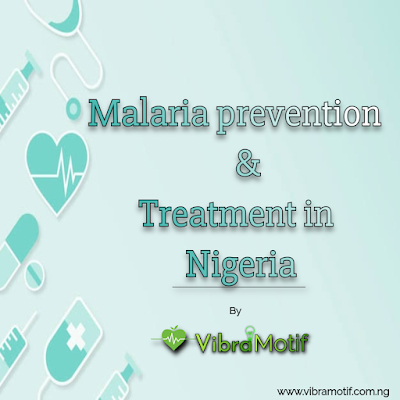Disclaimer: This content is original creations crafted by VIBRA MOTIF writers. We assure you that none of the content has been copied from other websites, and it is not generated by artificial intelligence Read more..
Vibra Motif Team Explores Nigeria's Malaria Challenge
Embarking as a collective force under the banner of Vibra Motif, our team delves into the intricate web of Nigeria's ongoing battle against malaria. Together, we navigate the diverse landscape of preventive strategies, treatment methodologies, and collaborative initiatives crucial for confronting this formidable health threat. Join us on a journey that unveils the story behind Nigeria's endeavors to combat malaria—from the nuanced approaches of vector control to the promising realms of innovative research. As a unified team, we shed light on the path leading to a future where malaria's grip on the resilient people of Nigeria is loosened.
Malaria remains an entrenched public health issue in Nigeria, posing a formidable threat to the populace. Successfully preventing and treating malaria demands a comprehensive strategy encompassing awareness, preventive measures, and effective treatment methodologies.
1. The Malaria Landscape in Nigeria
Nigeria grapples with a substantial burden of malaria, where factors like climate, stagnant water bodies, and insufficient healthcare infrastructure contribute to its widespread prevalence. Gaining a nuanced understanding of the problem is crucial for the targeted implementation of interventions.
2. Vector Control for Prevention: Bed Nets and Indoor Residual Spraying
Central to malaria prevention is vector control. In Nigeria, the widespread use of insecticide-treated bed nets (ITNs) and indoor residual spraying (IRS) significantly reduces mosquito bites during sleep and curtails mosquito populations indoors. These measures are pivotal in diminishing malaria transmission.
3. Antimalarial Medications as Preventive Measures
Prophylactic antimalarial medications are recommended for those living in or traveling to malaria-endemic regions. These medications act preventively by inhibiting the development of the malaria parasite in the bloodstream. Adherence to prescribed regimens is essential for their efficacy.
4. Community Empowerment: Malaria Awareness and Education
Communities play a pivotal role in the fight against malaria. Raising awareness about causes, symptoms, and preventive measures empowers individuals to take proactive steps. Educational campaigns, especially in rural areas, dispel myths and encourage community participation in prevention efforts.
5. Rapid Diagnostic Tests (RDTs): Enhancing Accurate Diagnosis
Swift and accurate diagnosis is critical for effective malaria management. Rapid Diagnostic Tests (RDTs) provide quick and reliable results, enabling healthcare professionals to initiate prompt and appropriate treatment. Wider access to RDTs enhances the efficiency of malaria control programs.
6. Artemisinin-Based Combination Therapies (ACTs): Leading the Treatment Front
Artemisinin-Based Combination Therapies (ACTs) are the frontline treatment for uncomplicated malaria in Nigeria. Blending artemisinin derivatives with other antimalarial drugs, ACTs offer a robust response against the malaria parasite. Strict adherence to the prescribed treatment course is imperative to prevent drug resistance.
7. Malaria Control Challenges: Surmounting Hurdles
Despite advancements, challenges persist in effectively preventing and treating malaria. Inadequate healthcare infrastructure, limited access to medications, and socioeconomic factors contribute to the complexity of malaria control efforts. Addressing these challenges requires a coordinated and sustained approach.
8. Research and Innovation: Propelling Malaria Control Strategies
Investing in research and innovation is pivotal for advancing malaria control strategies. Ongoing endeavors to develop new antimalarial drugs, vaccines, and innovative vector control methods are crucial to stay ahead of the evolving nature of the malaria parasite and its transmitting mosquitoes.
9. Collaboration is Key: Government, NGOs, and International Partnerships
Successful malaria control in Nigeria hinges on collaborative efforts. Government initiatives, bolstered by non-governmental organizations (NGOs) and international partnerships, are vital for the success of prevention and treatment programs. Adequate funding, healthcare professional training, and community involvement are integral components of a comprehensive approach.
10. A Malaria-Free Nigeria: Charting the Course Forward
(conclusion)
Eradicating malaria in Nigeria necessitates a holistic strategy integrating preventive measures, effective treatment approaches, community engagement, and ongoing research. By confronting challenges and fostering collaboration, Nigeria can aspire to transform into a malaria-free nation, ensuring the health and well-being of its citizens.



